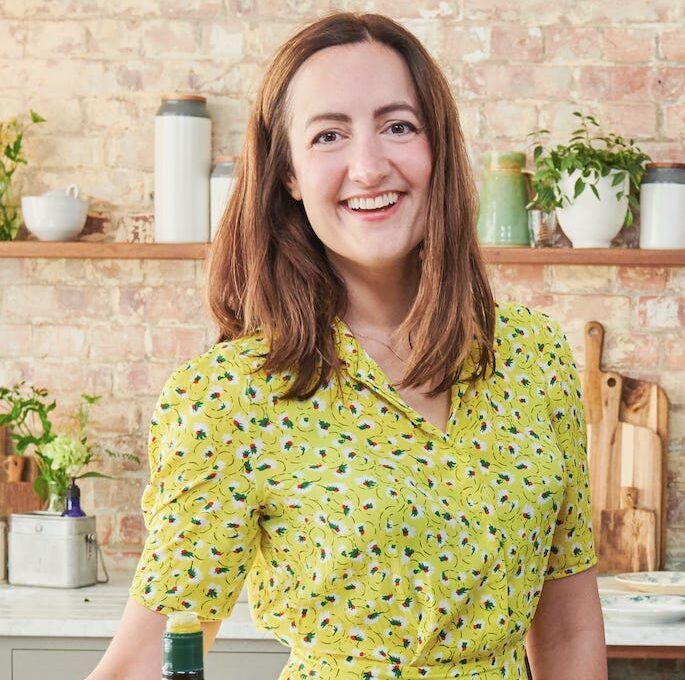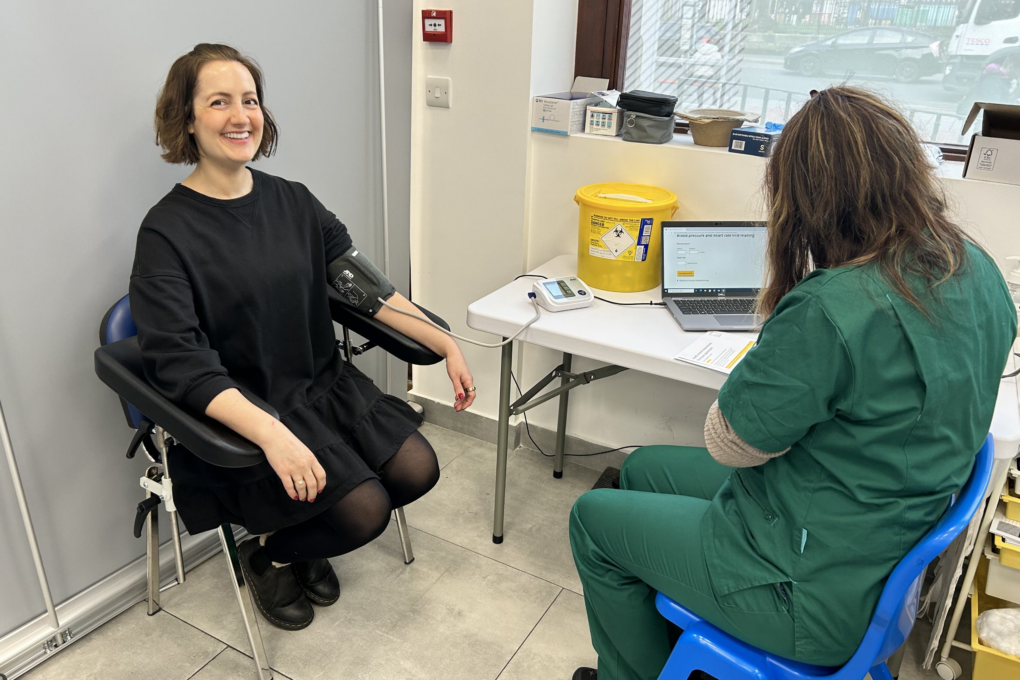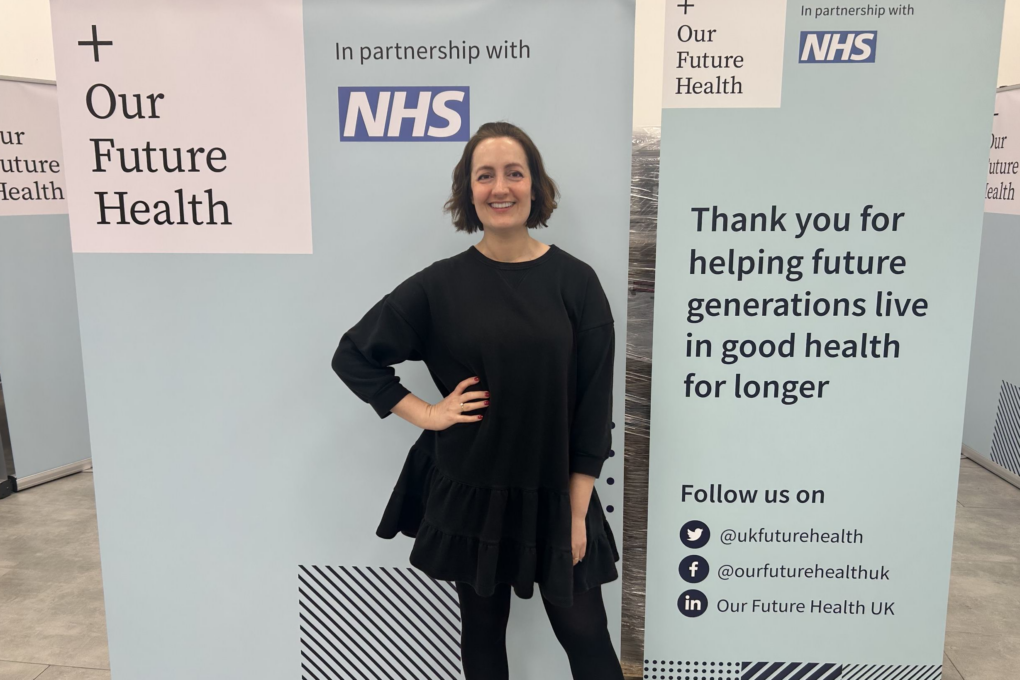‘Breast cancer treatments are so much better now because of health research’

Our Future Health volunteer Rosamund Dean wasn’t worried when she discovered a lump on her right breast in December 2020. “I was certain it wasn’t cancer,” she says. “I just thought it was cyst or maybe a hormonal thing.”
She went to the GP to get it checked, who referred her to a breast clinic where she had a mammogram, ultrasound and then a biopsy. “I googled ‘how many breast biopsies are cancer’ and it said 10%, so I thought, ‘It’s fine.’ Just before I left, they asked me to see the doctor. He said, ‘The results of the biopsy would normally take a week, but because of Christmas and New Year it’s going to be two weeks. So in January we’ll decide whether you need to have chemo first or go straight to surgery.”
A shocked Rosamund responded by saying, “But that’s if it’s cancer, which it might not be.” The doctor’s reply was unequivocal: “We can tell from the scan that it’s very likely to be cancer.”
On 6 January 2021, they confirmed it was stage 3 breast cancer – and further tests revealed another tumour in her breast. The cancer had also spread to three lymph nodes.
The results showed that Rosamund had a rare type of cancer that only 15% of people with breast cancer are diagnosed with – triple-negative. “Basically, there are three main types of breast cancer,” she says. “The hormonal types – oestrogen receptor positive and progesterone receptor positive, and HER2, which involves a protein called Human Epidermal Growth Factor 2. Those are treated really well – they have targeted drugs for HER2, and the others have hormonal treatments.”
Traditionally, triple-negative breast cancer has had a significantly worse prognosis than the other types, with fewer treatments. “One oncologist told me that 10 years ago, my diagnosis would be a death sentence. The breakthroughs that have occurred are amazing, and there have been even more in the period since I was diagnosed.”

Saved by new treatments
Thanks to recent advances in medicine, Rosamund – who joined Our Future Health at our Stratford clinic in March to help with breast cancer research for future generations – was given a new type of chemotherapy that didn’t exist a few years before her treatment began.
Her chemotherapy lasted five months, after which she had a full mastectomy of her right breast. “Not only is triple-negative more difficult to treat but it’s also more aggressive,” she says. “Mine was rated grade three – which is a rating of how fast it’s growing. Grade three is the fastest-growing.”
After surgery, Rosamund had 15 rounds of radiotherapy followed by more chemo, this time with a different drug designed to reduce the risk of recurrence. “They’re also giving me infusions of Zometa, which reduces the risk of recurrence in my bones, as that’s one of the most likely places the cancer could return.”
As well as the bones, the cancer could also spread to the lungs, brain or blood – and Rosamund learned that there’s never a Hollywood-style ‘all-clear’ moment. “The most they’ll say is ‘there’s no evidence of disease’. But you begin to fixate on any pain you experience – I’m trying to not to obsess over every little twinge.”
Genetic investigations
The biggest risk factors for breast cancer are being a woman and getting older. About 8 in 10 women who are diagnosed with breast cancer are over the age of 50.
There are other risk factors. For example, hormone receptor positive breast cancers are more likely than triple negative breast cancers to be associated with lifestyle factors, such as weight and alcohol intake. Triple negative cancers, on the other hand, are more likely to be associated with genetic factors. More research is needed to understand these risks – especially the role that genetics plays.
Genetic tests can pick up mutations that could be behind the cause. Rosamund’s came back negative – despite the fact her family has a history of breast cancer and ovarian cancer, which can be related. “My aunt died of ovarian cancer, and my mum’s mum died of breast cancer.”
As a journalist, Rosamund, has found that writing about cancer has helped her learn more about the disease and treatments available. “After I was diagnosed, I was asked to write more about breast cancer,” she says. “From speaking to experts, I’ve realised that there’s so much stuff I wish I’d known sooner. Now it’s my main area of interest – future-proofing myself.”

Hope for the future
Since being diagnosed with cancer, Rosamund has realised the importance of health research. “Especially for triple-negative breast cancer,” she says. “20 years ago, they would have given everyone chemo and the people with triple-negative cancer would have simply died because it wasn’t the right chemo. Now treatments are much better and that’s down to the research that’s been done recently.”
Helping with this future research was the driving force behind her joining Our Future Health. “Anything you can do to contribute to a better understanding of the general state of health of the population and anything that contributes to research is important,” she says. “By joining Our Future Health, you’re also aiding in our children and their children being healthier and receiving better treatments.”
Rosamund Dean is the author of Reconstruction: How to rebuild your body, mind and life after a breast cancer diagnosis

Let’s prevent disease together
By volunteering for Our Future Health, you can help health researchers discover new ways to prevent, detect and treat common conditions such as diabetes, cancer, heart disease, stroke and Alzheimer’s.